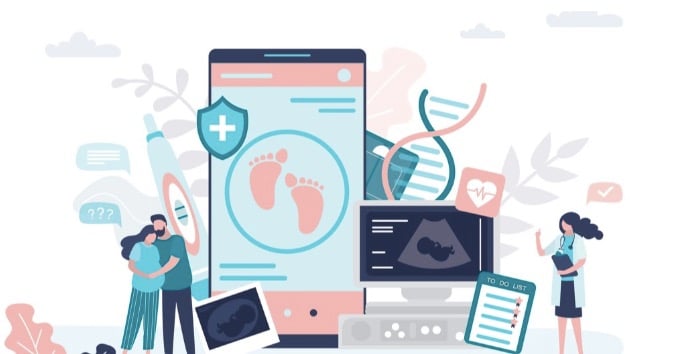
Care silos have long been a headache for the healthcare industry. Fragmentation and interoperability across care providers fuels inefficiencies and redundancies, and decreases the chances for timely interventions at heavy financial and operational costs, not to mention poorer outcomes.
This fragmentation has particularly severe consequences for the Medicaid population, who for a whole host of reasons often struggle to navigate the healthcare system and advocate for themselves, often resulting in patients slipping through the cracks or receiving care only after a condition has become acute, and more challenging and costly to manage.
For example, in the maternal health space, women who receive no prenatal care or care later in their pregnancy are more likely to experience a premature delivery or C-section. Complications such as hypertension or gestational diabetes are more difficult to manage with late identification and can contribute to increased maternal morbidity and mortality.
To begin to solve some of the structural difficulties of care coordination, Babyscripts created its Joint Deployment program, a collaboration between payer and provider where everyone can be on the same page about the care and needs of the member/patient. The solution consists of a single platform where member risks are identified through surveys. Members are then immediately connected to resources, and the care team (provider, case management, and payer team) is notified.
Risks like depression and suicidal thoughts, domestic abuse, and substance addiction are particularly pertinent problems in our pandemic environment, as the already high instances of such events have been exacerbated by quarantine restrictions, lockdowns, and a struggling economy.
Covid has especially increased anxiety, particularly in pregnant women who are already prone to it. This takes a harder toll on minorities, especially African American women who are already struggling with structural racism in our country. A strategy for identifying and managing these risks is crucial for making sure these women do not slip through the cracks.
The Babyscripts solution employs digital education and remote monitoring via a mobile app and connected devices, empowering patients and members throughout the pregnancy so that they understand what they’re experiencing and can put a name to it, helping them advocate for themselves in their healthcare system.
This is particularly important for minority women, who often feel intimidated and not taken seriously by the system. By giving parents access to a blood pressure (BP) monitor, for example, they can speak more accurately about their condition, assigning a data point to the symptoms they’re experiencing. They can communicate the emergency of their condition in clear terms to their provider, and receive the appropriate response. Having a headache is an easily dismissible problem, for example — having a headache and high blood pressure could be an event that requires immediate attention.
A remote monitoring solution can also capture data from patients who may be no-shows at appointments, a massive problem for women on Medicaid often caused by barriers of access, white coat syndrome, inability to navigate the health system, and other social determinants of health. RPM opens access to care for these patients, and it also opens appointments for the provider team to be able to treat the most acute patients.
As the landscape of care moves to a blended model of virtual and in-person, it is more important than ever that payers and providers take responsibility for Medicaid populations and ensure that they don’t get lost in the shift.

Submit a comment